Since 1993 Chief Rabbi Yosef C. Kantor has worked tirelessly and happily for Jews in Thailand, whether permanent residents or the big majority who are here for a holiday or just passing through.
By Maxmilian Wechsler
By Maxmilian Wechsler
Based here on invitation from the Jewish community, he is also an Executive Director of Chabad of Thailand. Chabad is a major movement within mainstream Jewish tradition that is dedicated to providing spiritual, material and social support for all Jews, wherever they may be found. The energetic and devout Chief Rabbi recently granted The BigChilli an exclusive interview.
| Background “I was born in the United States in 1969. My mother is American and my father is Australian. He was studying in New York, where he met my mother. I was two years old when we moved to Australia and I grew up in Melbourne. When I was 18, I moved to New York to continue my studies, and when I was 23 I married a Jewish girl from Los Angeles,” said Rabbi Kantor. “The Jewish community in Thailand asked the Chabad organization in Brooklyn, New York, to send a rabbi here, and in 1993 I became a rabbi in Bangkok. My wife and I were both chosen actually. We came here and we’ve never looked back. “We have been here more than a quarter of a century and we were both very young when we arrived. My wife was very brave to agree to come here. We came with a three-monthold baby. I think I was feeling – how should I say it – I was looking forward to doing something meaningful, coming to a place where there was no rabbi and building a haven for those who wanted to follow Judaism.” When asked how many Jewish people live in Bangkok, Rabbi Kantor said this is a very difficult question. “I would say at least a thousand, and maybe more. There are so many Jewish people who travel here, so it’s hard to say how actually many live here. There are people that come for a few months and there are people who stay for a few years. |
“Of the Jews who are here, it is very difficult to gauge how many really put down roots. Even people who stay 10 years may not plan to be here permanently. For a family, Bangkok is not an easy place to create continuity. Education in private schools is expensive unless your employer pays for the schooling. Bangkok is becoming more cosmopolitan in some sense, and the cost of living is going up.
“A fair number of Jewish people also live in Chiang Mai, Phuket and Ko Samui. In Chiang Mai Jewish residents include retirees and people pursuing business opportunities and other interests. The branches we have opened there mainly cater to tourists who are Jewish or are Israeli citizens.”
“A fair number of Jewish people also live in Chiang Mai, Phuket and Ko Samui. In Chiang Mai Jewish residents include retirees and people pursuing business opportunities and other interests. The branches we have opened there mainly cater to tourists who are Jewish or are Israeli citizens.”
| Zionism and Orthodoxy Asked to explain Zionism, Rabbi Kantor did a quick Google search and read the definition out loud: “A movement for (originally) the re-establishment and (now) the development and protection of a Jewish nation in what is now Israel. “Now, Zionism is not today such a big issue as it was before the founding of the State of Israel,” said Rabbi Kantor. “The movement of Zionism was then very important, because it basically meant the effort of trying to bring about the formation of the State of Israel. “These days, Zionism is about protecting and upholding the State of Israel. Most Jews agree this is extremely important and necessary. So, generally speaking Jewish people are somewhat Zionistic in their outlook. They want to see Israel remain,” Rabbi Kantor said forcefully. He explained that just as in Christianity, there are different Jewish creeds. ‘‘I follow Orthodox Judaism. Orthodox parents usually have many children because the Bible says: ‘Be fruitful and multiply’. We believe that children are a blessing and we believe that God will provide. |
“Orthodox Jews wear brimless caps called kippah. It is a reminder of God above. In Judaism everybody is required to practice all the traditional observances, but nobody is forced. Some do, some don’t. It’s a personal choice. And there is no tradition that a rabbi should not get married or anything like that. Rabbi, simply means ‘teacher’ and he just like Jewish laymen should do his best to observe all of the commandments,” Rabbi Kantor said.
Judaism in Bangkok
“We have three synagogues in Bangkok. The main one, which is under renovation, is Beth Elisheva Synagogue in Sukhumvit Soi 22. There is a Sephardic synagogue in the Silom area now located at Novotel Fenix Hotel, and we have a synagogue at Banglampoo, on Khao San Road. Outside Bangkok, there are synagogues in Chiang Mai, Phuket and Ko Samui. We plan to open a synagogue in Pai town in Mae Hong Son province.”
Rabbi Kantor said that Chabad is a philosophy, a movement and an organization that was started about 250 years ago in Russia. “It’s an organization to promote Judaism and Jewish observances. From 1950 to 1994, Chabad was led by the very charismatic Rabbi Menachem Mendel Schneerson. He sent emissaries all over the world to develop Judaism.
“So in this spirit, in Thailand I teach Judaism to local Jews and those passing through. I lead the services in the synagogue and I oversee the running of all synagogues in Thailand. We have a staff of 10 rabbis, including myself, split among the synagogues. I came first and then I brought nine more rabbis.
“We also build infrastructure for Jewish people here, for example a new cafe called J Cafe that we opened in May. It is not a commercial restaurant. It is a place where Jewish people can buy kosher food, some imported from Israel, and where they feel comfortable socializing and meeting fellow Jews. It is eventually meant to be in the synagogue building in Sukhumvit Soi 22. But because it will take a long time to build, we first rented this place in the Mille Malle Mall in Sukhumvit Soi 20.
“We have different compartments or departments of our organization. One department deals with certification of kosher food. Let’s say a factory in the US wants to bring tapioca starch from Thailand to use in their baby cereal and the finished product has a kosher certification. They need to know that the starch is also kosher. So we will do the inspection and issue a certificate. This is one of our divisions which bring in money. All income goes into our community activities.
“We have kosher restaurants in many tourist locations. The purpose of these restaurants is to encourage and allow people to eat kosher, and also to make a profit. Again, any profit goes back to the general organization. We have a business model that generates income, but it all goes back to the community. We are a non-profit enterprise,” Rabbi Kantor reiterated.
“What’s more, we don’t receive any financial support from outside. Everything comes from local support. Yes, we solicit donations – and this is another part of my work – because otherwise we couldn’t continue our work. Fund raising is an important part of my life.”
Besides overseeing religious observances and ceremonies and making sure local Jewish community activities are adequately funded, Rabbi Kantor tends to the needs of his shifting flock in many other ways. “People who need help often come to me, and that includes people who are ‘stuck’ here. Bangkok is as not cheap as it used to be. I help everyone, whether or not they are Jews. I also do counseling. I guess I am like an NGO.
“If a Jew leaves instructions with me that they wish to be buried at the Jewish cemetery in Bangkok, I see that his or her wishes are adhered to. If they do not make arrangements, nobody will know they wished to follow Jewish funeral rites. In Thailand they will be cremated by default. The Jewish cemetery in Bangkok is located right in front of the Protestant cemetery on Charoen Krung Road near Ramada Plaza Menam Riverside Hotel. The cemetery was established in 1994, and at present about 50 Jews are interred there.
“I also sometimes give talks to international schools about Judaism, and I travel a lot around Thailand. I believe that a Jewish voice needs to be heard in Bangkok and the world about morality.”
“We have three synagogues in Bangkok. The main one, which is under renovation, is Beth Elisheva Synagogue in Sukhumvit Soi 22. There is a Sephardic synagogue in the Silom area now located at Novotel Fenix Hotel, and we have a synagogue at Banglampoo, on Khao San Road. Outside Bangkok, there are synagogues in Chiang Mai, Phuket and Ko Samui. We plan to open a synagogue in Pai town in Mae Hong Son province.”
Rabbi Kantor said that Chabad is a philosophy, a movement and an organization that was started about 250 years ago in Russia. “It’s an organization to promote Judaism and Jewish observances. From 1950 to 1994, Chabad was led by the very charismatic Rabbi Menachem Mendel Schneerson. He sent emissaries all over the world to develop Judaism.
“So in this spirit, in Thailand I teach Judaism to local Jews and those passing through. I lead the services in the synagogue and I oversee the running of all synagogues in Thailand. We have a staff of 10 rabbis, including myself, split among the synagogues. I came first and then I brought nine more rabbis.
“We also build infrastructure for Jewish people here, for example a new cafe called J Cafe that we opened in May. It is not a commercial restaurant. It is a place where Jewish people can buy kosher food, some imported from Israel, and where they feel comfortable socializing and meeting fellow Jews. It is eventually meant to be in the synagogue building in Sukhumvit Soi 22. But because it will take a long time to build, we first rented this place in the Mille Malle Mall in Sukhumvit Soi 20.
“We have different compartments or departments of our organization. One department deals with certification of kosher food. Let’s say a factory in the US wants to bring tapioca starch from Thailand to use in their baby cereal and the finished product has a kosher certification. They need to know that the starch is also kosher. So we will do the inspection and issue a certificate. This is one of our divisions which bring in money. All income goes into our community activities.
“We have kosher restaurants in many tourist locations. The purpose of these restaurants is to encourage and allow people to eat kosher, and also to make a profit. Again, any profit goes back to the general organization. We have a business model that generates income, but it all goes back to the community. We are a non-profit enterprise,” Rabbi Kantor reiterated.
“What’s more, we don’t receive any financial support from outside. Everything comes from local support. Yes, we solicit donations – and this is another part of my work – because otherwise we couldn’t continue our work. Fund raising is an important part of my life.”
Besides overseeing religious observances and ceremonies and making sure local Jewish community activities are adequately funded, Rabbi Kantor tends to the needs of his shifting flock in many other ways. “People who need help often come to me, and that includes people who are ‘stuck’ here. Bangkok is as not cheap as it used to be. I help everyone, whether or not they are Jews. I also do counseling. I guess I am like an NGO.
“If a Jew leaves instructions with me that they wish to be buried at the Jewish cemetery in Bangkok, I see that his or her wishes are adhered to. If they do not make arrangements, nobody will know they wished to follow Jewish funeral rites. In Thailand they will be cremated by default. The Jewish cemetery in Bangkok is located right in front of the Protestant cemetery on Charoen Krung Road near Ramada Plaza Menam Riverside Hotel. The cemetery was established in 1994, and at present about 50 Jews are interred there.
“I also sometimes give talks to international schools about Judaism, and I travel a lot around Thailand. I believe that a Jewish voice needs to be heard in Bangkok and the world about morality.”
| Thailand tolerance allows growth Rabbi Kantor said that Judaism is not an official religion in Thailand because in order to be recognized as such a religion must be followed by two percent of the population. “There are around 65 million Thai Buddhists, and we are not even one percent of the population. Even though we can’t be an official religion, we are allowed to operate. And we are respectful of Buddhists and people of other faiths. “Thailand is a very tolerant and friendly place for people of different cultures and religions. This is a place that allows us as Jews to worship in a way we feel comfortable. Working here is very inspiring for me. The fact of the matter is that we are a small community and because of that many people when they come here start to think about reestablishing the contacts or roots that in another place they might take for granted. |
“Jews from Israel, from America, business people, locals Jews, all kinds of people come to our synagogues. We get a very diverse mix of people from all backgrounds coming to our services and activities and their number is growing. That’s why we want to build a new synagogue here,” said Rabbi Kantor.
“Bangkok has redefined itself and become much more modern, and our synagogue needs to do the same. So we are actually knocking down the old building and putting up a new sixstorey building. We are building on our own property, which belongs to the Jewish community. We will need to work hard to raise the funds to construct this building, but we will do it. Anyone who wishes to contribute money to this project can email [email protected].”
“Bangkok has redefined itself and become much more modern, and our synagogue needs to do the same. So we are actually knocking down the old building and putting up a new sixstorey building. We are building on our own property, which belongs to the Jewish community. We will need to work hard to raise the funds to construct this building, but we will do it. Anyone who wishes to contribute money to this project can email [email protected].”

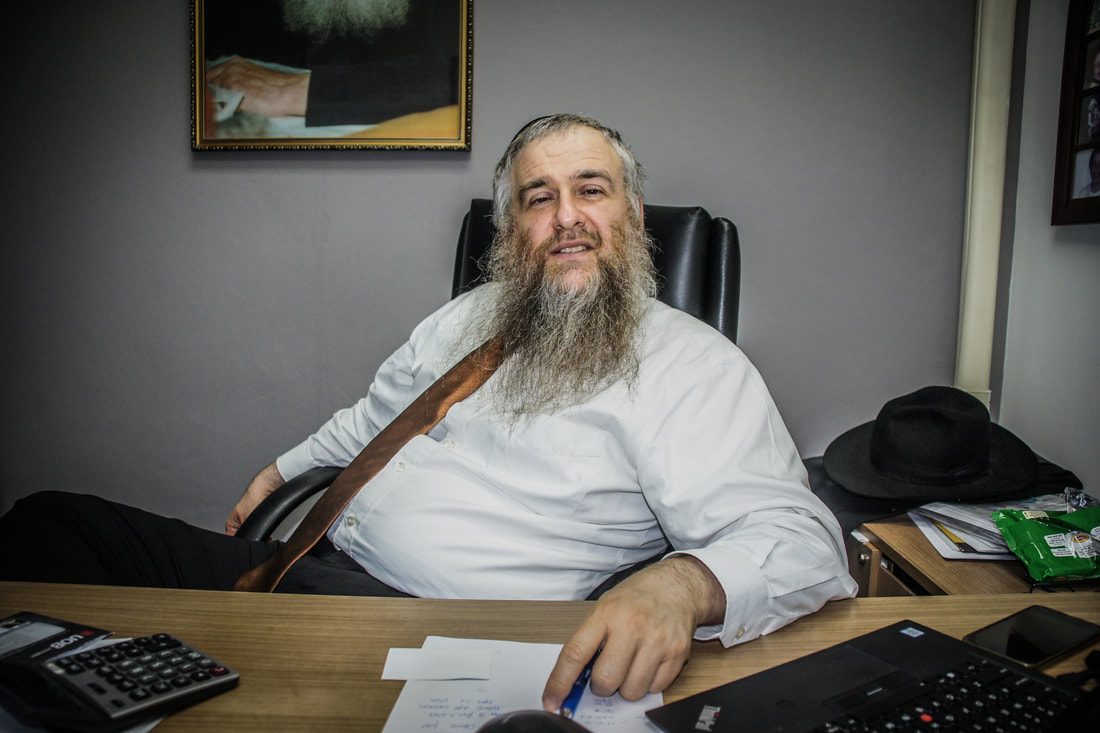
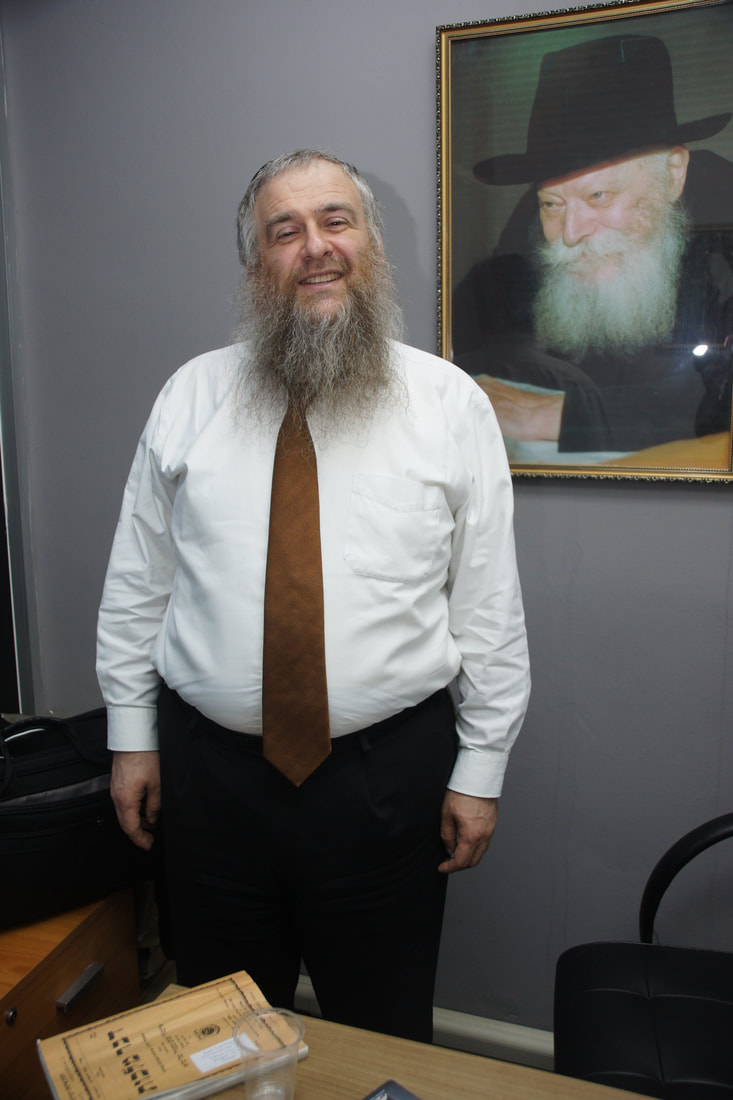
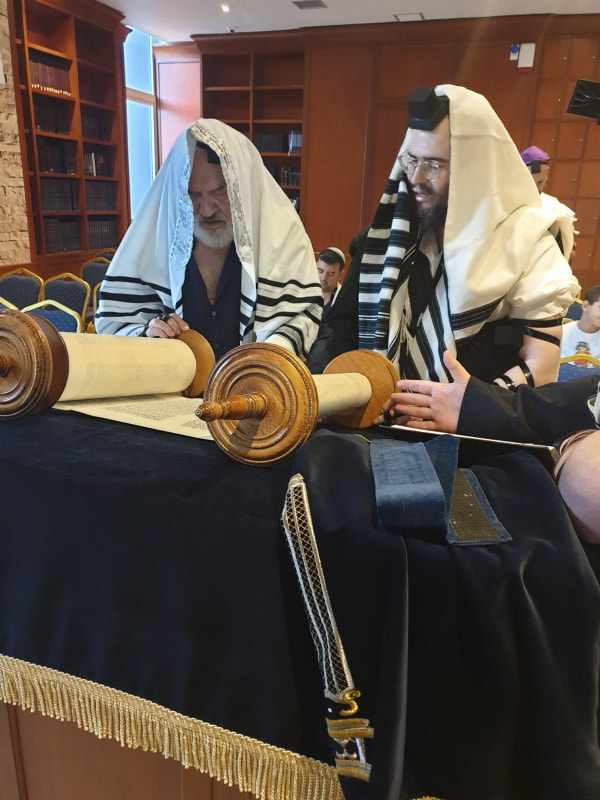
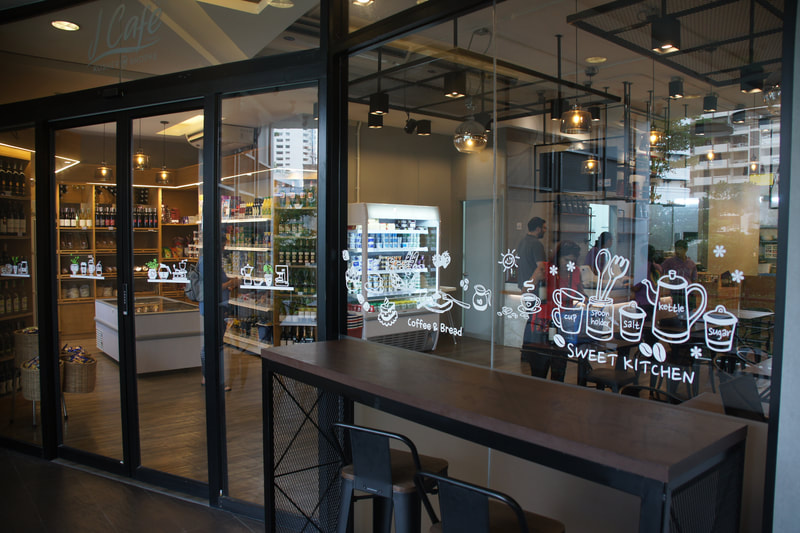
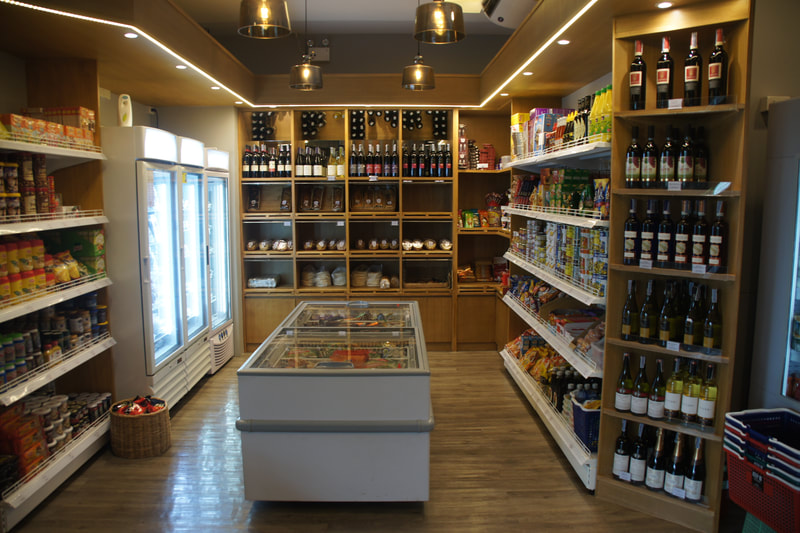
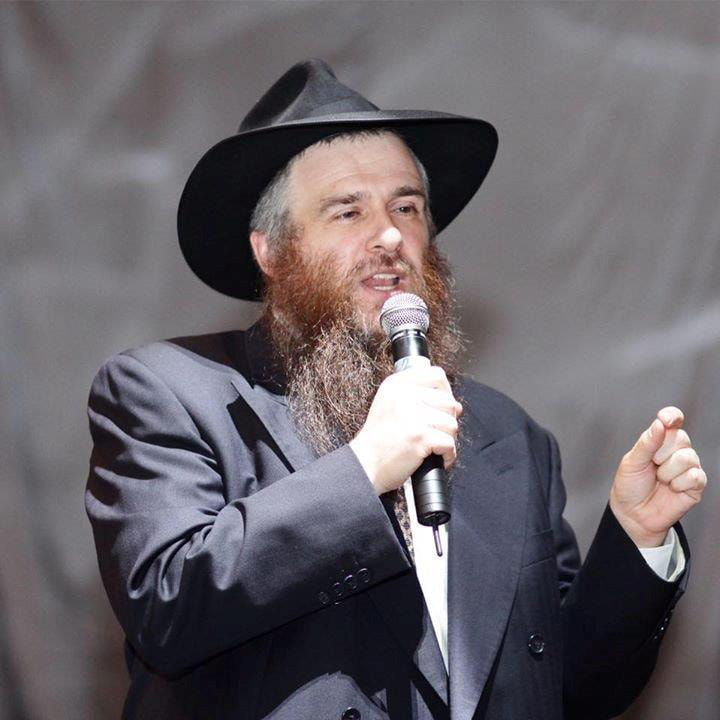
 RSS Feed
RSS Feed
















